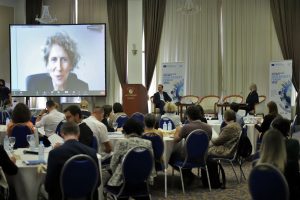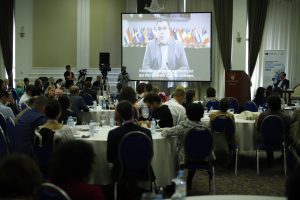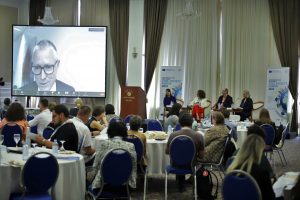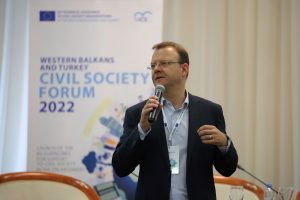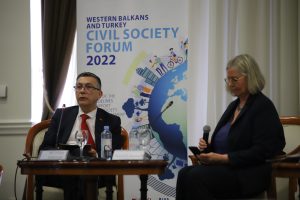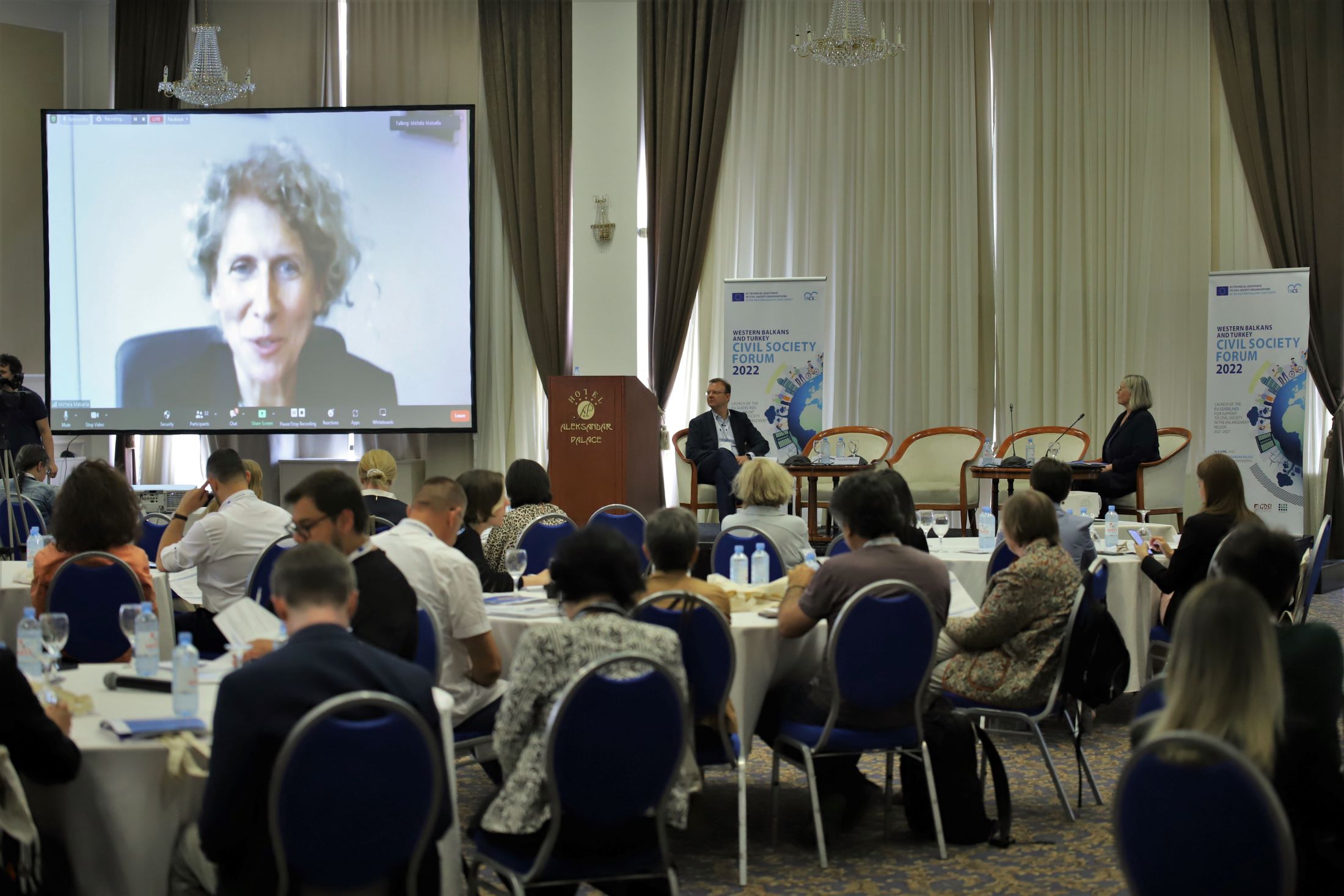
On behalf of the European Commission, Directorate-General for Neighbourhood and Enlargement Negotiations (DG NEAR), the EU TACSO 3 project organised the EU Western Balkans and Turkey Civil Society Forum on 8 – 9 June 2022, in Skopje, North Macedonia. This is the first time the Forum is taking place since the start of the COVID-19 pandemic.
Senior officials from the European Commission, EU Delegations, governments and diverse representatives from civil society organisations attended the Forum, a total of 120 participants in person, and an additional 100 online. In light of recent dramatic developments in Europe, namely the COVID-19 pandemic and Russia’s war of aggression against Ukraine, the Forum provided an opportunity to better understand challenges and opportunities in the region, and the role of civil society in helping to respond.
The main objective of the Forum was to launch the revised EU Guidelines for Support to Civil Society in the Enlargement region (2021-2027) and the Annex B Explanatory Note on the Guidelines. These Guidelines set out objectives for EU assistance to civil society, provide a tool for governments to improve cooperation with civil society, and help to measure progress towards meeting conditions for EU integration. Over the period 2014 to 2020, through the Civil Society Facility and Media Programme, the EU has provided around EUR 330 million in support for civil society, whereas the amount planned for the period 2021-2023 is EUR 218 million. The Guidelines will assist the EU to assess the impact of this support.
Ms Michela Matuella, Acting Director of the Western Balkans Directorate at DG NEAR said: “The Western Balkans remain a priority for the EU, and the EU remains fully engaged in advancing the EU accession process. In this framework, civil society organisations are key partners. All stakeholders involved need to work with a shared vision on how the role of civil society can be optimised. It is here that the “Guidelines for EU Support to Civil Society in the Enlargement Region 2021-2027” that were launched come into the picture. Special focus should be placed on engaging the younger generation in the work, to allow them to help making the region an attractive place to live, do business, and realise their ambitions.”
Mr Holger Schroeder, Head of Unit, Western Balkans Regional Programmes, Economic Investment Plan at DG NEAR stated: “The Enlargement region, and the EU integration process, need a strong and vibrant civil society to contribute to necessary reforms, help involve citizens and support the economic, social and political transformation of the region.”
Mr Bojan Marichikj, Deputy Prime Minister for European Integration in the Government of Republic of North Macedonia said: “A strong and developed civil society by no means should be perceived as a threat to any government, but should be embraced as an added value for the development of the democratic processes in the country. The revised Guidelines for EU Support for Civil Society in the Enlargement region 2021-2027 provide a solid foundation of how we can all, the government and public institutions further strengthen our partnership and establish a structural dialogue to work in the interest of the citizens.”
In conclusion, the role of civil society is more important than ever. We need the civil society from the enlargement region to monitor impacts, reduce misinformation, defend the interest of the marginalised communities, and maintain the focus on the longer-term challenges.
